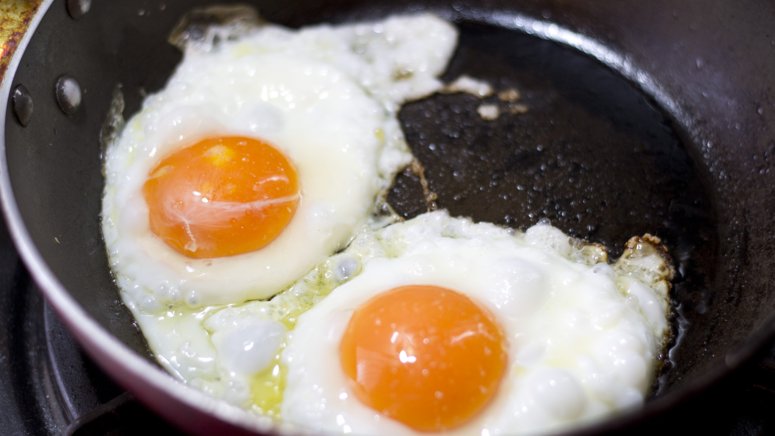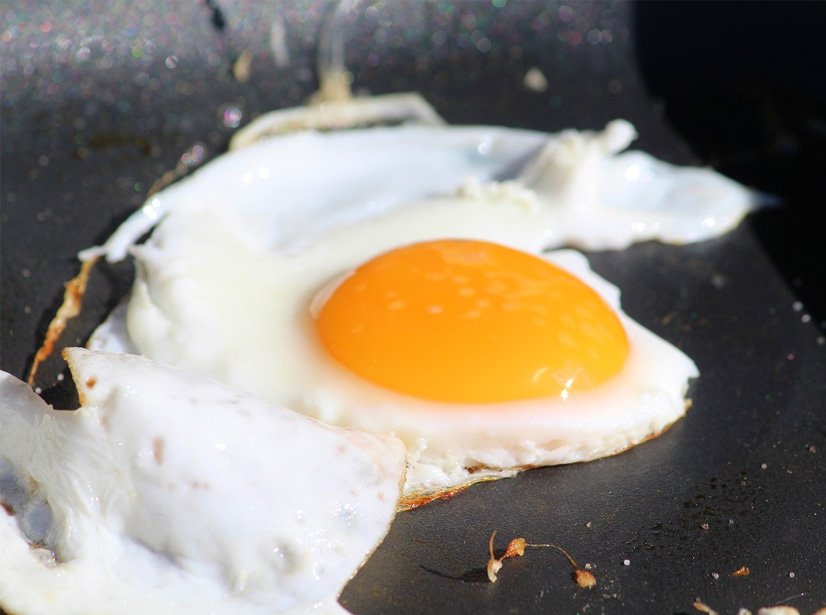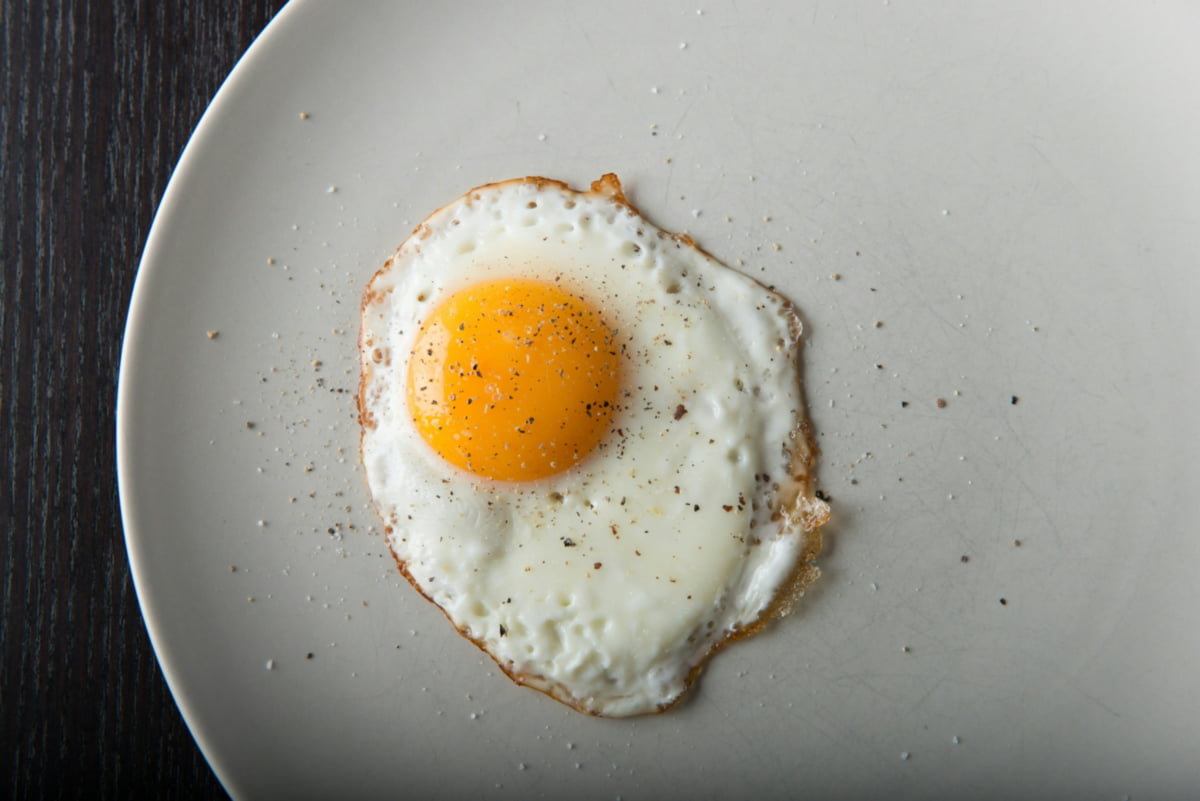

I’ll be honest, when I first heard about freezing fried eggs, I rolled my eyes.
Why freeze something that takes five minutes to cook? But a few hectic mornings (and too many wasted leftovers) later, I finally get it.
Freezing fried eggs isn’t about laziness, it’s about saving time, cutting food waste, and making breakfast easier when life’s busy.
But, let’s be real: frozen eggs won’t taste exactly like fresh ones. However, if you freeze and reheat them the right way, they’re surprisingly good.
So if you know what you’re working with, let’s talk about which fried eggs actually survive the freezer.
The Short Answer: Yes, You Can Freeze Fried Eggs, But Some Freeze Better Than Others

As we said earlier, you can freeze fried eggs, but not all styles survive equally.
The trick is knowing which types hold up, and why.
When eggs freeze, the water inside their whites and yolks turns into ice crystals. As those melt, they tear through the egg’s protein structure, making whites rubbery and yolks chalky or grainy.
So yes, freezing works, if you start with the right texture and cook the egg a certain way.
| Type | Freezes Well? | Texture After Thawing | Best Use |
| Sunny side up | ❌ | Watery whites, broken yolk | Skip it |
| Over easy | ⚠️ | Soft but a little rubbery | Sandwiches |
| Over medium | ✅ | Holds shape, mild firmness | Meal prep |
| Over hard | ✅ | Best overall | Breakfast wraps or meal prep |
Why Over-Hard Eggs Win the Freezer Test
It all comes down to moisture content.
A fully cooked yolk has less water, so fewer ice crystals form. That means no gritty yolk or collapsed structure when reheated.
According to the USDA Egg Products Guide, cooked eggs can be frozen safely for up to two months in airtight packaging. However, the texture may change slightly as proteins denature below freezing.
My Mini Experiment: Why I Started Freezing Fried Eggs

This wasn’t some big test, it started because I was tired of skipping breakfast. I cooked a few over-hard eggs on Sunday, cooled them completely, wrapped them up, and froze them to see if they’d hold up.
Here’s what I learned:
- After a few days: Practically no change, tasted just like a fresh egg sandwich.
- After two weeks: Slightly firmer whites, but still totally fine once reheated in a skillet.
- After a month: The edges got a little tougher, but they were still flavorful and held together well.
It comes down to time versus texture, fresh will always taste best, but frozen fried eggs save time and prevent food waste. They’re not restaurant-perfect, but they’re real-life good, especially on busy mornings when convenience wins.
How to Freeze Fried Eggs (The Right Way)
It’s not rocket-science, but here are the steps.
- Cool completely first. Freezing hot eggs creates steam, which turns to ice and ruins texture.
- Flash-freeze individually. Line a baking sheet with parchment, arrange cooled eggs in a single layer, and freeze for 1–2 hours.
- Wrap and store. Once solid, wrap each egg tightly in plastic wrap or foil. Then place them all in a labeled freezer bag.
- Freeze flat. Keeps them from sticking or cracking.
- Shelf life: Up to 2 months for best taste and texture (per USDA guidelines).
How to Reheat Frozen Fried Eggs
You’ve got two solid methods, microwave or skillet. I prefer the skillet because gentle heat keeps the texture tender.
For detailed times and step-by-step instructions, check out my full guide on how to reheat fried eggs. (and how to reheat eggs in general, if you’re working with other types).
What Not to Do
A few things sound fine but ruin texture every time:
- Don’t freeze runny yolks. The water content destroys structure when thawed.
- Don’t skip cooling time. Steam = ice = freezer burn.
- Don’t reheat on high. Microwaves can create rubbery whites in seconds.
- Don’t expect sunny-side-up magic. The yolk breaks down and separates after thawing.
Creative Ways to Use Frozen Fried Eggs
Once thawed, you’ve got a ready-to-go protein shortcut.
Here’s where they shine:
- In breakfast sandwiches (add cheese and sausage)
- Tucked into burritos or wraps
- On top of rice bowls or ramen
- Sliced into fried rice or stir-fry
- Mashed into egg salad (they mimic hard-boiled eggs after thawing)
Think of them as meal-prep eggs with a head start.
Myth Busting: Freezing Fried Eggs
| Myth | Reality |
| “You can freeze any fried egg.” | Only fully cooked ones hold up — runny yolks collapse. |
| “They’ll taste gross after thawing.” | Not if cooled properly and reheated gently. |
| “It’s unsafe to freeze cooked eggs.” | USDA confirms it’s safe for up to 2 months if airtight. |
So, Go Save Your Breakfast
Freezing fried eggs isn’t about perfection, it’s about practicality.
If you expect them to taste identical to freshly made eggs, you’ll be disappointed.
But if you treat them like the breakfast backup they are, they’ll save you time, reduce waste, and make your mornings easier.
If you found this guide useful, checkout my reheating food hub, where we go into details on warming up different types of foods.
Great Info,
wife generally cooks enough food for the First Armored Division. Great grub, too much?